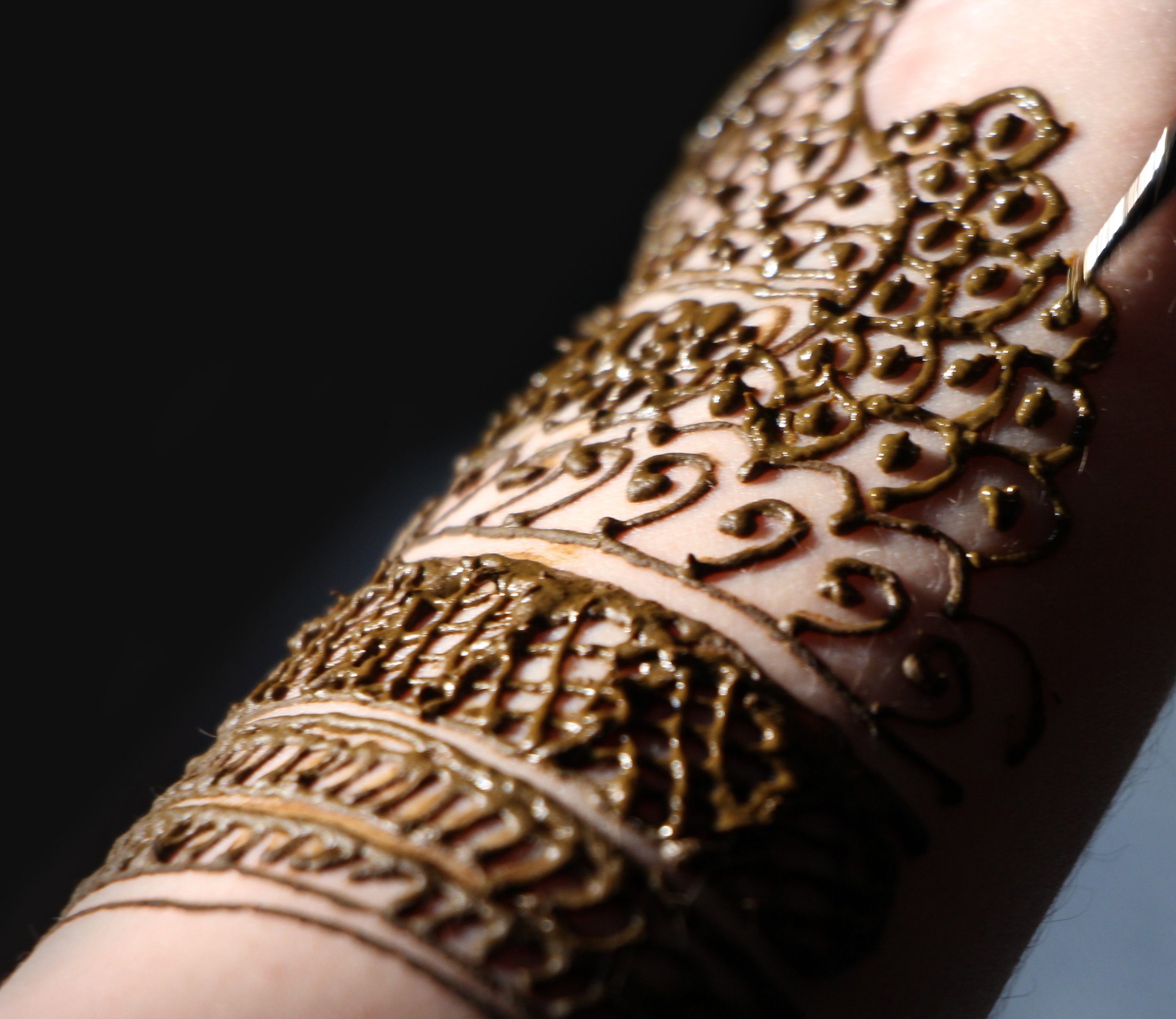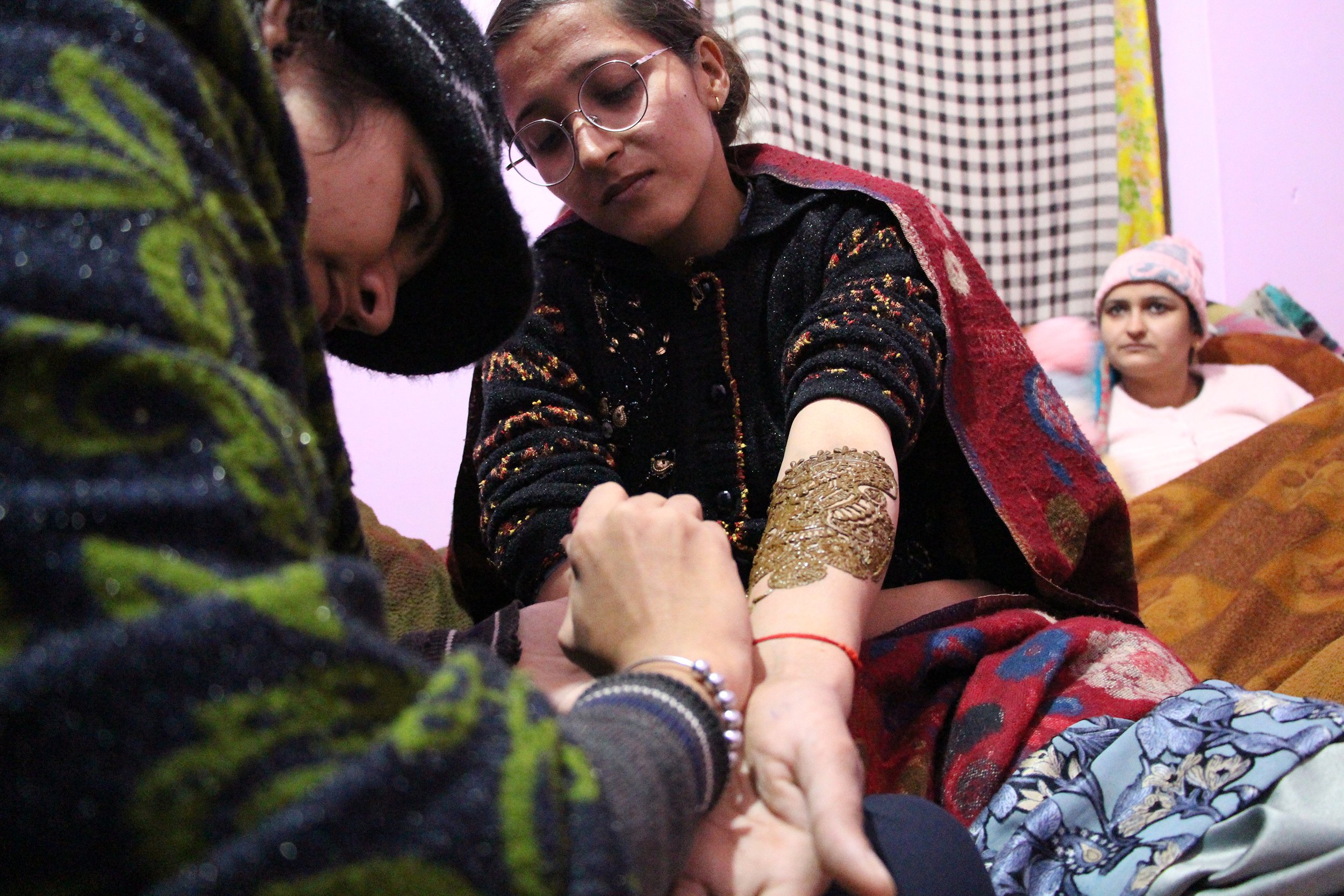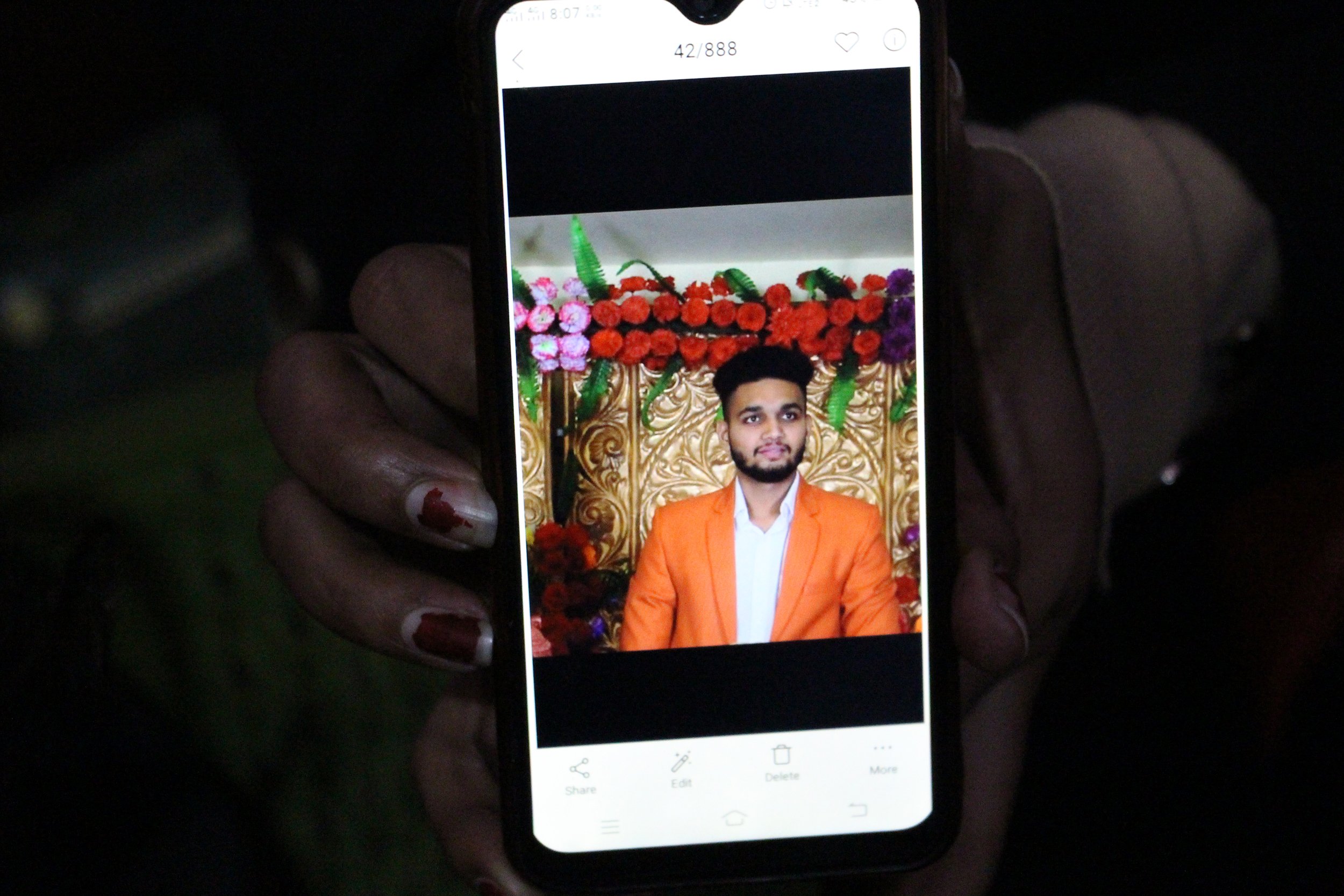Preparing brides for marriage
India’s long-standing tradition of henna, especially among women and weddings, creates a safe space for women to talk with one another.
By Talia McWright
Sapna stands in her small kitchen Jan. 10, making chai and chatting with her guests. At seven months pregnant, Sapna is not currently working, but ordinarily she earns her own income through hair and makeup, henna and stitching. “I want to run my own parlor,” Sapna said. | Photo by Anna Kapsner
Sisters Ritu and Anjali will marry on the same day, both to men they’ve only seen in photographs. On a cool January night, the sisters sat in the bubblegum-pink bedroom of their childhood home surrounded by family members and neighbors, arms stretched out for two hours during their traditional henna wedding ceremony, Mehandi. Their wedding would be the next day.
“I’m not mentally prepared for marriage,” Anjali said at the Mehandi. The sister’s henna artists, Renu and Ekta, are both unmarried, unable to provide much marriage advice to the women. But Kaithal, Haryana-based artist Sapna can.
Sapna pulls colorful fabrics from the drawers in her room Jan. 10. In addition to henna, she mends clothing to pay for her daughter’s education. “I want her to be educated,” Sapna said. “But it all depends on whether she wants to be married or not.” | Photo by Bella Haveman
Sapna, 22, has been doing henna for 13 years, preparing brides for marriage during their Mehandi. Married at 16, Sapna offers brides advice while painting their arms and legs for hours at a time. In this region of Northern India, henna marks special occasions and brings shagun, meaning good luck or fortune. As Sapna is grateful to have had a positive marital experience, she shares this with her clients. The environment she creates is a safe space for women to talk about their fears and desires.
“It is very important for a bride to have henna, because this is a tradition we [Indian women] have been following for many years,” Sapna said.
Ritu and Anjali have known about their arranged marriages since fall 2023, only a few months prior to their January weddings. Neither expressed excitement about the wedding, but rather nervousness about how soon they would be brides and worry about how their lives might change. Though their family and neighbors celebrated, they couldn’t be certain their marriages would be worth the excitement.
_____
Sapna’s clients often feel nervous. Women ask Sapna questions about what to expect, especially regarding intimacy on the wedding night. Brides often have a limited knowledge of sexual education, and Mehandi might be one of the only times they can talk about it. When Sapna was unmarried and doing henna, women did not ask her these kinds of questions. She does not share every detail of what might happen during the bride’s first night with their spouse and sometimes feels shy when answering their questions, but shares anyway because she too had questions about her wedding night.
“I didn’t expect they’d be asking these questions, but yes they ask,” Sapna said.
Sapna remembers her wedding night. How she worried about what her husband Santosh’s demeanor would be, about how her body looked and what he might think of her. He made her feel beautiful and was gentle with her. This experience has given her confidence to reassure new brides that their marriages might be like hers.
“I tell them nothing is going to happen, just be patient,” Sapna said.
The henna process requires time, focus and a steady hand. During Mehandi, Sapna uses between seven to eight cones of henna — each the size of her hand — for one bride. In her earlier days, her hands would cramp with pain, but now having painted more than a thousand hands, she is used to the feeling.
Brides typically pay Sapna 2,500 rupees (about $30) for henna, and other clients pay her 150 rupees per hand. With the money she earns from henna, Sapna has been able to buy groceries and pay for her 5-year-old daughter Neha’s education. Neha is already interested in henna and Sapna will teach her when she’s older, but she wants Neha to become a doctor or a lawyer.
“I want for her to be educated,” Sapna said. “But it all depends on whether she wants to be married or not.”
During Sapna’s pregnancy with Neha, she was doing henna frequently. She’s now seven months pregnant with her second child and understands the importance of taking rest for a healthy pregnancy. She stopped the practice in her sixth month. Family members have expressed to Sapna and her husband their hopes that the baby will be a boy, insinuating that a boy would grant them more freedom and opportunity. Sapna shared that the couple is happy to be pregnant and does not care what the gender of the child will be, as they are excited to have two children.
“It is very important for a bride to have henna, because this is a tradition we [Indian women] have been following for many years.”
When Sapna first started with henna, people thought her designs weren’t impressive and clients even paid her less than they had agreed if they didn’t like her work. She felt judged by people who doubted her but kept practicing until her skills improved. Having gained experience, not only do people seek her out to do their henna, but they use her as a counselor during their session.
“I didn’t believe in giving up,” Sapna said.
Sapna and her family are renting their current home. The kitchen where she makes chai is a short walk outside of her bedroom, as is the bathroom. Her bedroom contains all she needs to run her henna business, sew Punjabi suits and play with her daughter. The space is temporary, but it houses her family and holds important memories, like the photo of her late sister she keeps under her mattress. The space is a home, but it’s missing one thing: an area where Sapna can practice her passions, like an established business.
“I want to run my own parlor,” Sapna said.
_____
Though Ritu and Anjali have yet to experience the reassurance that their husbands will treat them well, they each have their own plans for the future. Ritu has her master’s in English from Kalavati Memorial Government College in Narwana, Haryana. She wants to become an assistant professor and teach in India. Anjali wants to get her bachelor of science in nursing at a school in Australia or Canada. The sisters’ families support their career goals and can only hope that their new families will do the same. After their wedding, the henna stains on their arms become a reminder of the last night the two shared together before becoming married women.





